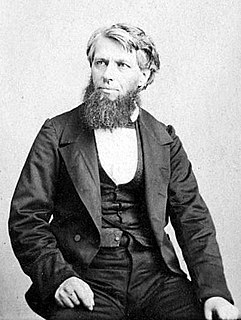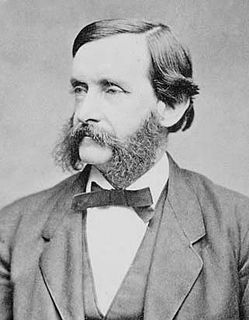A Quote by John Bartholomew Gough
It is the minority that has stood in the vain of every moral conflict, and achieved all that is noble in the history of the world.
Related Quotes
What is a minority? The chosen heroes of this earth have been in a minority. There is not a social, political, or religious privilege that you enjoy today that was not bought for you by the blood and tears and patient suffering of the minority. It is the minority that have stood in the van of every moral conflict, and achieved all that is noble in the history of the world.
The United States has faced threats from criminal groups, from terrorists, from spies throughout our history, and we have limited our responses. We haven't resorted to total war every time we have a conflict around the world, because that restraint is what defines us. That restraint is what gives us the moral standing to lead the world.
You find as you look around the world that every single bit of progress in humane feeling, every improvement in the criminal law, every step toward the diminution of war, every step toward better treatment of the colored races, or every mitigation of slavery, every moral progress that there has been in the world, has been consistently opposed by the organized churches of the world. I say quite deliberately that the christian religion, as organized in its churches, has been and still is the principle enemy of moral progress in the world.
History is not truth versus falsehoods, but a mixture of both, a mélange of tendencies, reactions, dreams, errors, and power plays. What's important is what we make of it; its moral use. By writing history, we can widen readers' thinking and deepen their sympathies in every direction. Perhaps history should show us not how to control the world, but how to enlarge, deepen, and discipline ourselves.
The conflict between the principle of liberty and the fact of slavery is coming gradually to an issue. Slavery has now the power, and falls into convulsions at the approach of freedom. That the fall of slavery is predetermined in the counsels of Omnipotence I cannot doubt; it is a part of the great moral improvement in the condition of man, attested by all the records of history. But the conflict will be terrible, and the progress of improvement perhaps retrograde before its final progress to consummation.































